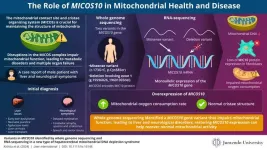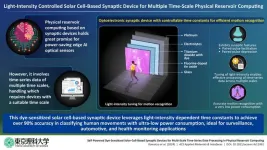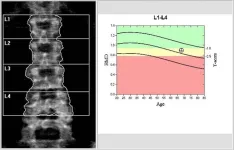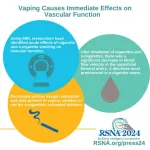New York, NY [November 25, 2024]—Today, the Mount Sinai Health System, one of New York City’s largest academic medical systems, announced the opening of the Hamilton and Amabel James Center for Artificial Intelligence and Human Health, which is dedicated to enhancing health care delivery through the research, development, and application of innovative artificial intelligence (AI) tools and technologies.
The state-of-the-art research center solidifies Mount Sinai Health System’s leadership in delivering patient care through groundbreaking innovation and technology. As one example, Mount Sinai was among the first academic medical centers in the United States to build and operate a supercomputer, named "Minerva," which went into service in 2013.
The interdisciplinary center will combine artificial intelligence with data science and genomics in a location at the center of the campus of The Mount Sinai Hospital in Manhattan. The facility will initially house approximately 40 Principal Investigators, alongside 250 graduate students, postdoctoral fellows, computer scientists, and support staff.
Supported by a generous gift from Hamilton Evans "Tony" James, Executive Vice Chairman of the Manhattan-based investment firm Blackstone, and his wife, Amabel, the 12-story, 65,000-square-foot facility will be housed in a repurposed Mount Sinai building at 3 East 101st Street.
“By integrating AI technology across genomics, imaging, pathology, electronic health records, and beyond, Mount Sinai is revolutionizing doctors’ capacity to diagnose and treat patients, reshaping the future of health care. Mount Sinai has been at the forefront of AI research and development in health care, and now we stand as one of the first medical schools to establish a dedicated AI research center,” says Eric J. Nestler, MD, PhD, Director of the Friedman Brain Institute, Dean for Academic and Scientific Affairs and Nash Family Professor in the Nash Family Department of Neuroscience at Icahn School of Medicine at Mount Sinai and Chief Scientific Officer at Mount Sinai Health System. “As AI technology is evolving rapidly, this moment is critical for maintaining leadership in digital health. The Hamilton and Amabel James Center for Artificial Intelligence and Human Health will cultivate an optimal environment for researchers to deepen their understanding, diagnosis, and treatment of human diseases—including the most debilitating—and to advance overall health and well-being.”
“If we want to use artificial intelligence for the greater good and make significant progress in health care, investing in AI research and development within academic institutions is essential,” says Dennis S. Charney, MD, Anne and Joel Ehrenkranz Dean at Icahn Mount Sinai and President for Academic Affairs of the Mount Sinai Health System. “While large tech companies possess substantial funding and resources to access high-performance equipment, they lack access to a health care system, limiting their progress in the field. This new AI research center at Icahn Mount Sinai will yield transformative discoveries in human health by the integration of research and data, fostering collaboration across multiple programs under one roof.”
To construct the new AI center, Mount Sinai modernized an existing building to meet contemporary standards, including updating the facade to align with the aesthetic of other campus buildings. Within the 12 floors of the center, eight will be dedicated to Mount Sinai’s AI initiatives. These core facilities include:
The Windreich Department of AI and Human Health, which focuses on creating an “AI Fabric” that will integrate machine learning and AI-driven decision-making throughout the Health System’s eight hospitals. The Hasso Plattner Institute for Digital Health at Mount Sinai (HPI•MS), formed in 2019 through a collaboration with the Hasso Plattner Institute for Digital Engineering in Germany, which aims to enhance capabilities in data science, biomedical and digital engineering, machine learning, AI, and wearable technology. In 2024, the Hasso Plattner Foundation renewed its generous support of HPI•MS for the next five years. The Institute for Genomic Health and Division of Medical Genetics, which leads the effort to harness the power of genomic discovery to develop new ways to prevent and treat diseases, including cancers, heart problems, and genetic disorders. The Biomedical Engineering and Imaging Institute, focused on the use of multimodality imaging for brain, heart, and cancer research, along with research in nanomedicine for precision imaging and drug delivery. The Institute for Personalized Medicine, which launched the human genome sequencing research project called the Mount Sinai Million Health Discoveries Program, which aims to enroll 1 million racially and ethnically diverse patients, advance precision medicine research, and improve patient care.
-####-
About Mount Sinai's Windreich Department of AI and Human Health
Mount Sinai's Windreich Department of AI and Human Health, the first such department in a U.S. medical school, is committed to advancing and optimizing artificial intelligence and human health. The department is dedicated to harnessing the power of leading-edge tools to revolutionize scientific research and discovery. This commitment is realized through the creation of an "intelligent fabric," seamlessly integrating machine learning and AI-driven decision-making throughout Mount Sinai’s entire health system. It includes the distinguished Icahn School of Medicine at Mount Sinai, serving as a central hub for innovative learning. This integration facilitates robust partnerships spanning all research institutes, academic departments, hospitals, and outpatient centers. Through this strategic approach, the Department is accelerating progress in disease prevention, treating severe illnesses, and enhancing the overall quality of life for all.
In 2024, the Department's innovative NutriScan AI application, designed to facilitate faster identification and treatment of malnutrition in hospitalized patients, earned Mount Sinai Health System the prestigious Hearst Health Prize. This machine learning tool improves malnutrition diagnosis rates and resource utilization, demonstrating the impactful application of AI in health care. For more information, visit ai.mssm.edu.
About the Icahn School of Medicine at Mount Sinai
The Icahn School of Medicine at Mount Sinai is internationally renowned for its outstanding research, educational, and clinical care programs. It is the sole academic partner for the eight- member hospitals* of the Mount Sinai Health System, one of the largest academic health systems in the United States, providing care to a large and diverse patient population.
Ranked 11th nationwide in National Institutes of Health (NIH) funding and among the 99th percentile in research dollars per investigator according to the Association of American Medical Colleges, Icahn Mount Sinai has a talented, productive, and successful faculty. More than 4,560 full-time scientists, educators, and clinicians work within and across 45 academic departments and 38 multidisciplinary institutes, a structure that facilitates tremendous collaboration and synergy. Our emphasis on translational research and therapeutics is evident in such diverse areas as genomics/big data, virology, neuroscience, cardiology, geriatrics, as well as gastrointestinal and liver diseases.
Icahn Mount Sinai offers highly competitive MD, PhD, and Master’s degree programs, with current enrollment of more than 1,200 students. It has the largest graduate medical education program in the country, with more than 2,685 clinical residents and fellows training throughout the Health System. In addition, more than 560 postdoctoral research fellows are in training within the Health System.
A culture of innovation and discovery permeates every Icahn Mount Sinai program. Mount Sinai’s technology transfer office, one of the largest in the country, partners with faculty and trainees to pursue optimal commercialization of intellectual property to ensure that Mount Sinai discoveries and innovations translate into healthcare products and services that benefit the public.
Icahn Mount Sinai’s commitment to breakthrough science and clinical care is enhanced by academic affiliations that supplement and complement the School’s programs.
Through the Mount Sinai Innovation Partners (MSIP), the Health System facilitates the real-world application and commercialization of medical breakthroughs made at Mount Sinai. Additionally, MSIP develops research partnerships with industry leaders such as Merck & Co., AstraZeneca, Novo Nordisk, and others.
The Icahn School of Medicine at Mount Sinai is located in New York City on the border between the Upper East Side and East Harlem, and classroom teaching takes place on a campus facing Central Park. Icahn Mount Sinai’s location offers many opportunities to interact with and care for diverse communities. Learning extends well beyond the borders of our physical campus, to the eight hospitals of the Mount Sinai Health System, our academic affiliates, and globally.
-------------------------------------------------------
* Mount Sinai Health System member hospitals: The Mount Sinai Hospital; Mount Sinai Beth Israel; Mount Sinai Brooklyn; Mount Sinai Morningside; Mount Sinai Queens; Mount Sinai South Nassau; Mount Sinai West; and New York Eye and Ear Infirmary of Mount Sinai.
END









